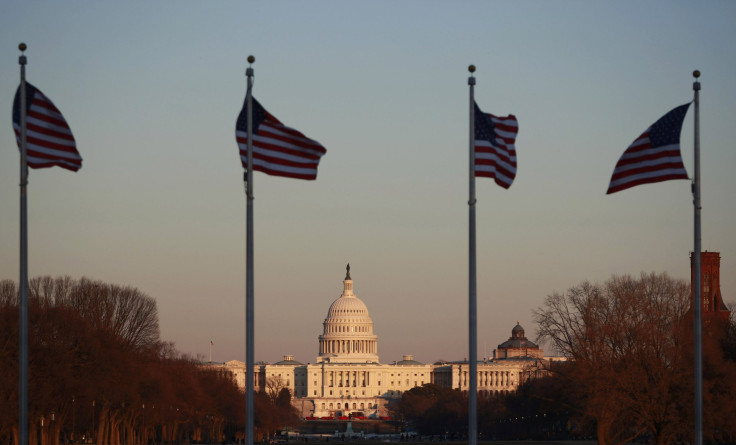US Senate Passes 2-Year Budget Deal Through March 2017, Averts Government Shutdown And Debt Default

UPDATE: 3:20 a.m. EDT -- The U.S. Senate passed a two-year budget deal early Friday that aims to prevent the government from defaulting on its debts and extends its borrowing authority until March 2017.
The bill, which was passed by the Senate shortly after 3:00 a.m. EDT, will now be sent to President Barack Obama for signing before a Tuesday deadline.
The legislation reportedly passed by a vote of 64-35, despite opposition from several Republican senators.
Original story:
The U.S. Senate voted early Friday to advance a two-year budget deal that aims to raise the debt ceiling through March 2017, and allows the government to continue to borrow money to pay its bills. The final passage of the measure, which was approved by the House earlier this week, is expected in a few hours.
Senators voted 63-35 to advance the budget bill that has deeply divided Republicans. According to reports, U.S. Senators Ted Cruz (R-Texas), Rand Paul (R-Ky.) and Marco Rubio (R-Fla.), who are in the race for the GOP's presidential nomination, voted against, while Sen. Lindsey Graham (R-S.C.) -- who is also running for the party’s nomination -- voted to advance the bill. The division was also visible Wednesday during the vote in the House of Representatives, when 79 Republicans joined 187 Democrats to ensure that the bill reaches the Senate.
In addition to raising the debt limit, the measure would also boost federal spending by about $80 billion over the next two years for military and domestic programs. The Treasury Department has warned that the government is likely to default on its debt unless the limit is raised by Tuesday.
Several Republicans, however, have objected to lifting the budget caps and raising the debt limit. Early Friday, Paul reportedly said the agreement “represents the worst of Washington culture.”
Although senators can, under Senate rules, debate the agreement for an additional 30 hours after the 1 a.m. EDT vote, Majority Leader Mitch McConnell (R-Ky.) said he would keep the Senate in session until they take a final vote on the budget deal.
“It’s my hope that the debate time will be extremely limited and that we'll be able to move to a passage vote almost immediately after the 1 a.m. [vote]," McConnell said. “The timing, however, is up to any individual senator who claims debate time after the 1 a.m. vote.”
© Copyright IBTimes 2024. All rights reserved.






















